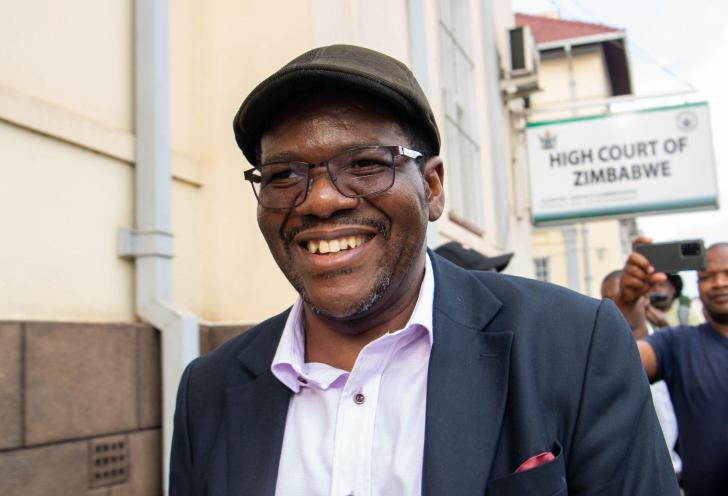News / National
Tshabangu wins Supreme Court battle
15 May 2025 at 14:26hrs |
4 Views

The Supreme Court has overturned a High Court ruling that had nullified the controversial changes to the Citizens Coalition for Change (CCC)'s parliamentary leadership made by self-proclaimed party secretary-general Sengezo Tshabangu, citing a procedural error by the presiding judge.
The changes, which were subsequently recognised by the Speaker of Parliament Jacob Mudenda, have been a subject of fierce legal and political contestation within the opposition ranks.
In a judgment handed down this week, the Supreme Court ruled that the High Court decision - delivered in favour of CCC interim leader Welshman Ncube, who had challenged the lawfulness of Tshabangu and Mudenda's actions - was void because the judge failed to attach an official order to the ruling.
The absence of a formal order, the Supreme Court said, meant that in legal terms, no judgment had been issued at all.
As a result, the Supreme Court directed that the matter be remitted to the High Court to be heard afresh before a different judge.
"The judge a quo did not issue an operative order. Accordingly, the purported judgment is a nullity," the Supreme Court noted in its ruling. "The case must therefore be re-heard before another judge of the High Court."
The development is a setback for Ncube and the CCC faction opposed to Tshabangu's leadership claims. It also means that the legality of the parliamentary recalls and reconfigurations orchestrated by Tshabangu and backed by Speaker Mudenda remains unresolved pending a proper hearing.
Tshabangu, who has declared himself interim secretary-general of the CCC, sparked a political storm in late 2023 after initiating the recall of several MPs and councillors, claiming they were no longer members of the party. His actions fractured the opposition party and prompted multiple legal challenges.
This Supreme Court ruling, while not weighing in on the substance of the dispute, prolongs the legal uncertainty surrounding CCC's internal leadership and its parliamentary representation.
Legal analysts say the fresh High Court hearing could be crucial in setting a precedent on the powers of self-declared party officials and the role of Parliament in endorsing leadership disputes.
The changes, which were subsequently recognised by the Speaker of Parliament Jacob Mudenda, have been a subject of fierce legal and political contestation within the opposition ranks.
In a judgment handed down this week, the Supreme Court ruled that the High Court decision - delivered in favour of CCC interim leader Welshman Ncube, who had challenged the lawfulness of Tshabangu and Mudenda's actions - was void because the judge failed to attach an official order to the ruling.
The absence of a formal order, the Supreme Court said, meant that in legal terms, no judgment had been issued at all.
As a result, the Supreme Court directed that the matter be remitted to the High Court to be heard afresh before a different judge.
The development is a setback for Ncube and the CCC faction opposed to Tshabangu's leadership claims. It also means that the legality of the parliamentary recalls and reconfigurations orchestrated by Tshabangu and backed by Speaker Mudenda remains unresolved pending a proper hearing.
Tshabangu, who has declared himself interim secretary-general of the CCC, sparked a political storm in late 2023 after initiating the recall of several MPs and councillors, claiming they were no longer members of the party. His actions fractured the opposition party and prompted multiple legal challenges.
This Supreme Court ruling, while not weighing in on the substance of the dispute, prolongs the legal uncertainty surrounding CCC's internal leadership and its parliamentary representation.
Legal analysts say the fresh High Court hearing could be crucial in setting a precedent on the powers of self-declared party officials and the role of Parliament in endorsing leadership disputes.
Source - online
Join the discussion
Loading comments…





























